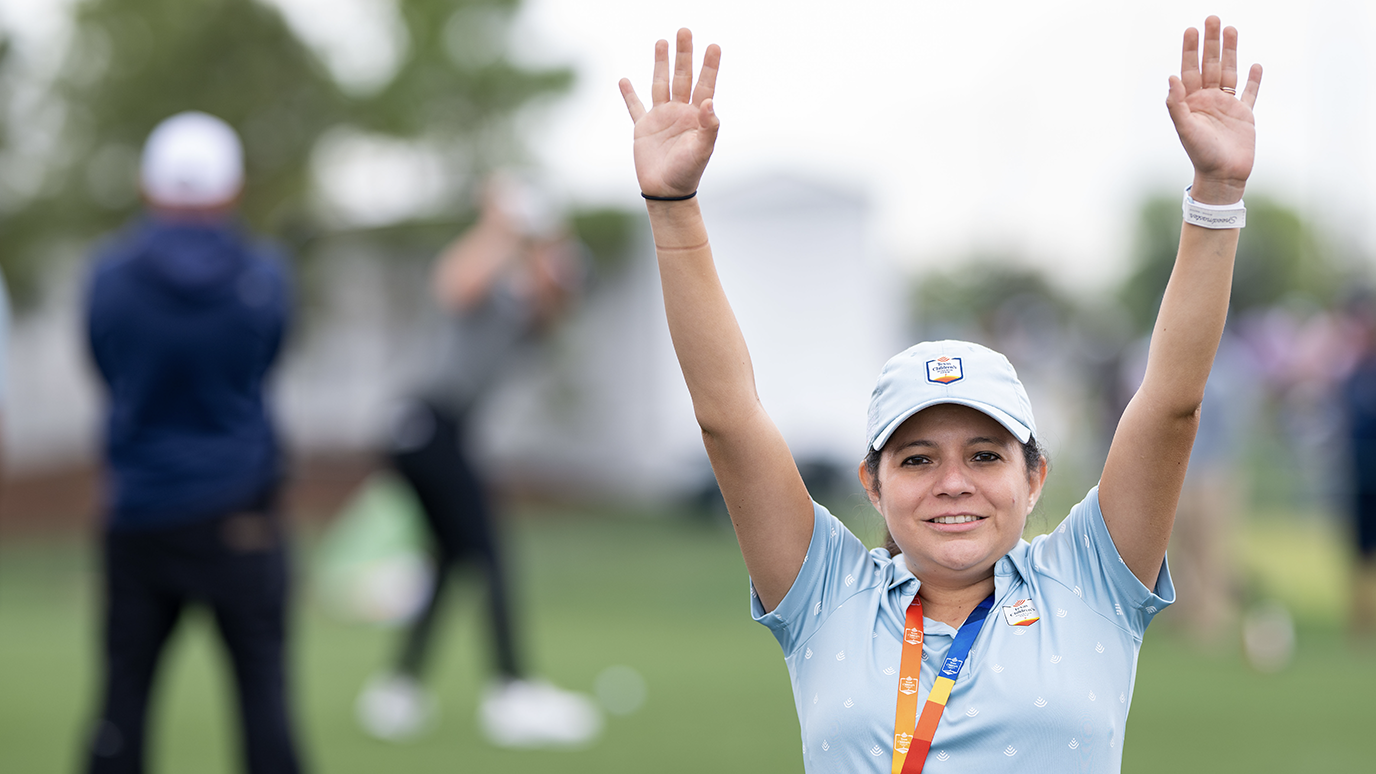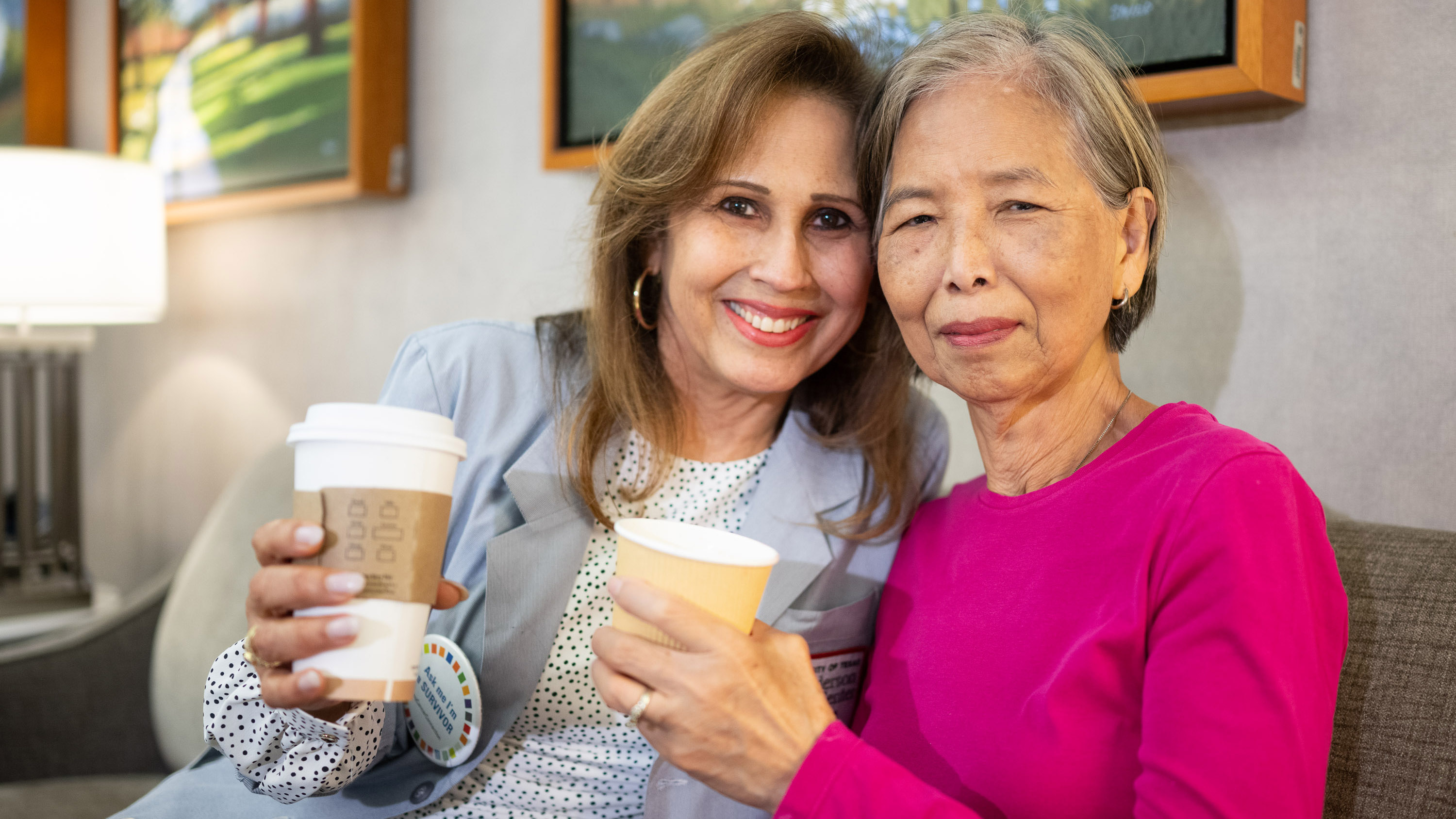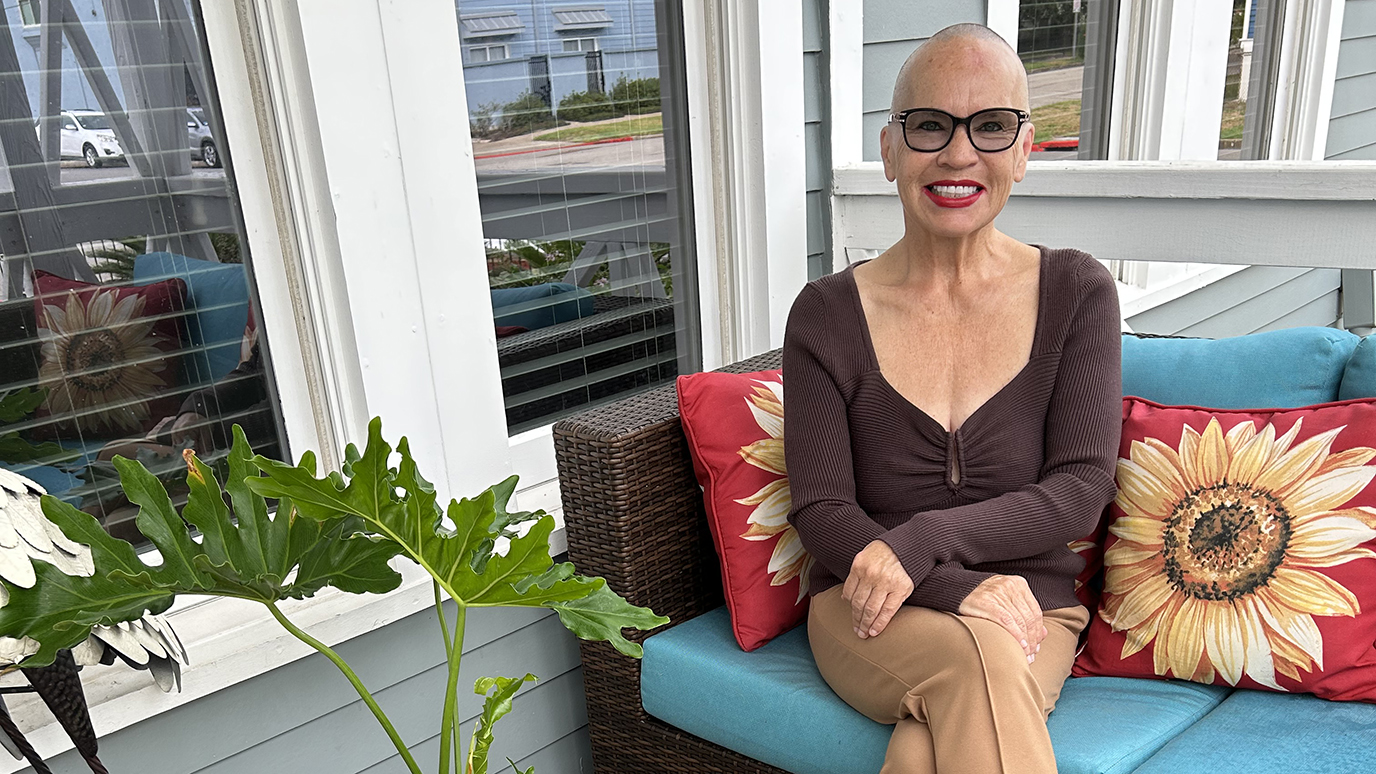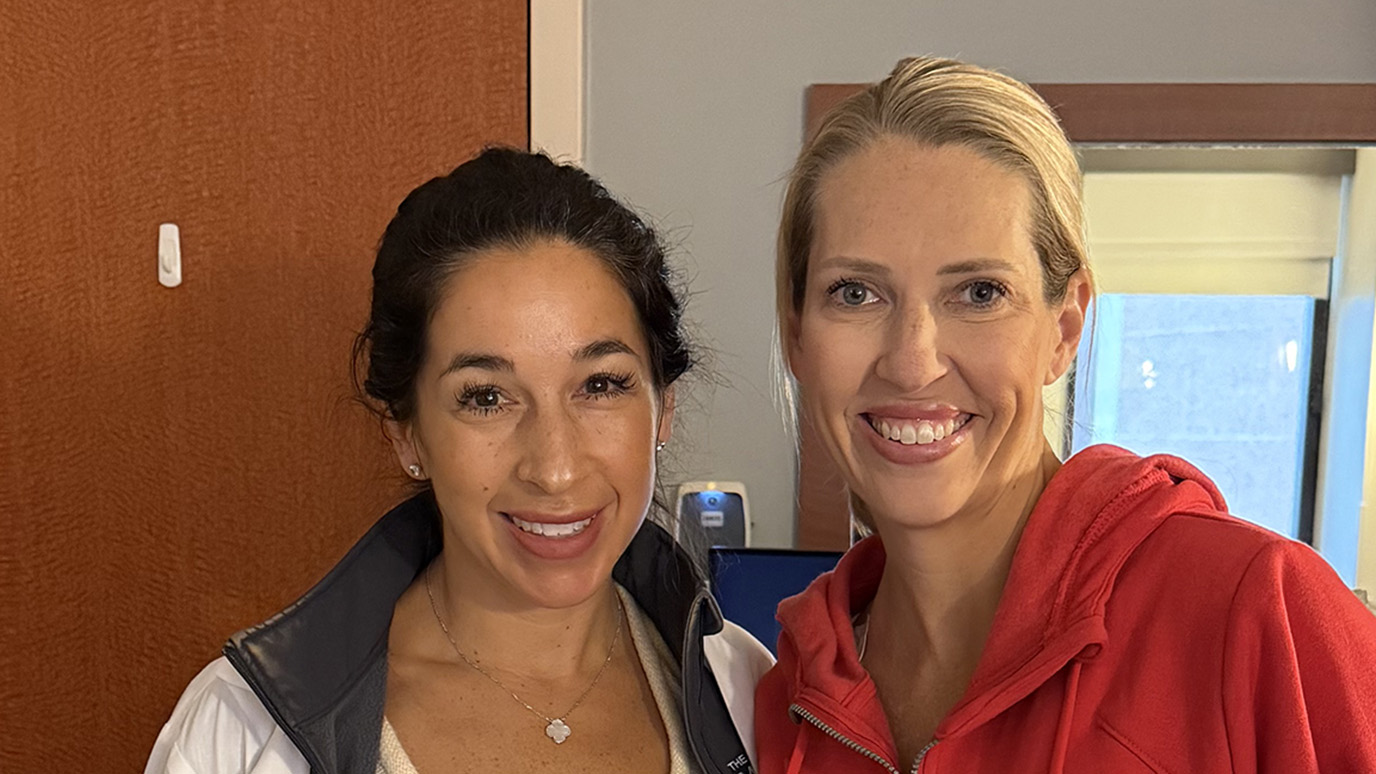- Diseases
- Acoustic Neuroma (14)
- Adrenal Gland Tumor (24)
- Anal Cancer (68)
- Anemia (2)
- Appendix Cancer (16)
- Bile Duct Cancer (26)
- Bladder Cancer (72)
- Brain Metastases (28)
- Brain Tumor (232)
- Breast Cancer (714)
- Breast Implant-Associated Anaplastic Large Cell Lymphoma (2)
- Cancer of Unknown Primary (4)
- Carcinoid Tumor (8)
- Cervical Cancer (158)
- Colon Cancer (166)
- Colorectal Cancer (118)
- Endocrine Tumor (4)
- Esophageal Cancer (44)
- Eye Cancer (36)
- Fallopian Tube Cancer (8)
- Germ Cell Tumor (4)
- Gestational Trophoblastic Disease (2)
- Head and Neck Cancer (12)
- Kidney Cancer (128)
- Leukemia (342)
- Liver Cancer (50)
- Lung Cancer (286)
- Lymphoma (278)
- Mesothelioma (14)
- Metastasis (30)
- Multiple Myeloma (100)
- Myelodysplastic Syndrome (60)
- Myeloproliferative Neoplasm (6)
- Neuroendocrine Tumors (16)
- Oral Cancer (100)
- Ovarian Cancer (172)
- Pancreatic Cancer (160)
- Parathyroid Disease (2)
- Penile Cancer (14)
- Pituitary Tumor (6)
- Prostate Cancer (146)
- Rectal Cancer (58)
- Renal Medullary Carcinoma (6)
- Salivary Gland Cancer (14)
- Sarcoma (238)
- Skin Cancer (296)
- Skull Base Tumors (56)
- Spinal Tumor (12)
- Stomach Cancer (64)
- Testicular Cancer (28)
- Throat Cancer (92)
- Thymoma (6)
- Thyroid Cancer (98)
- Tonsil Cancer (30)
- Uterine Cancer (80)
- Vaginal Cancer (16)
- Vulvar Cancer (20)
- Cancer Topic
- Adolescent and Young Adult Cancer Issues (20)
- Advance Care Planning (10)
- Biostatistics (2)
- Blood Donation (18)
- Bone Health (8)
- COVID-19 (362)
- Cancer Recurrence (120)
- Childhood Cancer Issues (120)
- Clinical Trials (632)
- Complementary Integrative Medicine (22)
- Cytogenetics (2)
- DNA Methylation (4)
- Diagnosis (232)
- Epigenetics (6)
- Fertility (62)
- Follow-up Guidelines (2)
- Health Disparities (14)
- Hereditary Cancer Syndromes (126)
- Immunology (18)
- Li-Fraumeni Syndrome (8)
- Mental Health (116)
- Molecular Diagnostics (8)
- Pain Management (62)
- Palliative Care (8)
- Pathology (10)
- Physical Therapy (18)
- Pregnancy (18)
- Prevention (918)
- Research (392)
- Second Opinion (74)
- Sexuality (16)
- Side Effects (604)
- Sleep Disorders (10)
- Stem Cell Transplantation Cellular Therapy (216)
- Support (402)
- Survivorship (322)
- Symptoms (182)
- Treatment (1786)
My anal cancer treatment: How I learned to laugh through the pain
5 minute read | Published June 18, 2021
Medically Reviewed | Last reviewed by an MD Anderson Cancer Center medical professional on June 18, 2021
In 2013, I noticed blood in my stool, which I thought was related to hemorrhoids. I also noticed heartburn on occasion. But it took five years and seeing a lot of doctors to ultimately get a stage IV anal cancer diagnosis.
A colonoscopy I had in 2013 showed a concerning spot, so I saw a colorectal surgeon. However, the surgeon was adamant that it was just a hemorrhoid – nothing to worry about.
I started to have pain when I was running. I finally went in for another colonoscopy in 2017. My doctor again found the same concerning spot,. Although the biopsy came back normal, she advised me to see another surgeon. Something did not look normal.
A different colorectal surgeon planned to take a deeper biopsy while addressing the hemorrhoid. The lymph nodes in my pelvis were also growing.
But when I saw my gynecologist, she suggested a biopsy and MRI of my lymph nodes. The MRI results came back as probable metastatic cancer. A local oncologist confirmed that diagnosis.
We still didn't know where the cancer started and I didn’t want to know the stage or my prognosis. I didn’t want to give it a name and own it in any way. I decided from that moment on, I would call it an “invader.”
When I did finally receive a definitive stage IV anal cancer diagnosis, my local oncologist told me I needed to start treatment right away. But I wanted a second opinion at MD Anderson. I knew the best thing to do was to see doctors that had already treated many anal cancer cases and are experts in the latest research and technology.
Coming to MD Anderson for a second opinion
On Sept. 20, 2018, I met radiation oncologist Dr. Emma Holliday and colorectal surgeon Dr. Brian Bednarski. The moment I walked into Dr. Holliday’s office and met her nurses, it was like a breath of fresh air. I like to joke about everything, and when they were able to laugh with me and understand me, the heavy feeling I had been carrying around was lifted.
Dr. Holliday was so positive. The day I first met her was the first time since my diagnosis that I felt like someone was saying odds were in my favor. I decided that day to call her “Dr. Happy!”
My anal cancer treatment
Soon after my first appointment, I started six weeks of radiation therapy and chemotherapy. I looked forward to going to MD Anderson every day knowing they were working hard for my best outcome. On Mondays, I would spend the day getting a new dose of cisplatin chemotherapy and then be hooked up to a bag of 5-Fluorouracil (5-FU) chemotherapy that I would carry with me for five days. I developed nausea that affected my appetite and suffered from diarrhea and skin irritation.
Monday through Friday, I would get radiation therapy. My care team and fellow patients at the Radiation Treatment Center became my family. As soon as I would arrive, I was able to start joking and connecting with people again. My care team encouraged me, supported me and gave me the medicine I needed to manage my side effects from radiation therapy and chemotherapy. I knew that I could email or call any of them at any time and they would get back to me.
Finding relief with integrative medicine
One of the most helpful things I did at MD Anderson was taking advantage of the Integrative Medicine Center offerings. The team there is amazing. They helped me manage my nausea with acupuncture and relaxation techniques. I also met with psychiatrist Dr. Jerry Ignatius and psychologist Dr. Aimee Christie, who helped me embrace my diagnosis and focus on meditative healing.
A cancer diagnosis is life changing. That’s why it’s important to seek help from someone who can help you cope. During cancer treatments, we fight hard for our life, and it’s important to remember to do the same for our mental health.
What helped me through my cancer journey
Here are the things that helped me through my anal cancer diagnosis and treatment:
- My faith. This was the most important part of my journey. I prayed about treatment, where to go and who to go with.
- My husband. When I look back, the most comforting thing I remember is my husband holding my hand.
- My family and friends. They supported me and drove me to treatments.
- The staff and doctors at MD Anderson. Every time I walk into MD Anderson, I feel like I am going home and being wrapped into a giant hug.
- Laughter. I told jokes to my doctors, nurses and radiation therapists, and on the days I really needed them, Dr. Holliday’s team told me jokes as well. A positive attitude and sense of humor made the hard days better.
Making peace with anal cancer
Most people did not know what kind of cancer I had. Through my journey, I’ve been able to grow. Now I can say the words “cancer” and “anal cancer” with peace and know that I can help others going through the same journey.
I know that people have a hard time talking about anal cancer because it has a stigma attached to it. There are a lot of things that people think of that would make you high-risk. I want people with anal cancer to know that it’s OK and nothing to be ashamed of. No one should feel ashamed of having a disease, no matter what that disease is.
Learn to laugh through the pain
Earlier this year, I reached two years in remission. I’ve learned to take what I’ve been given and use it to help others with an anal cancer diagnosis.
Here’s my advice for those facing a cancer diagnosis. Talk to people in the waiting rooms. Connect with others going through the same thing. People have great ideas that you might not have heard of while you are going through treatment.
Look for the positive. There is always a positive, but sometimes you have to look a little harder for it. Joke about everything. Even in tears, you can find laughter.
Even though the treatment process for anal cancer is hard, there is an end to it. Don’t give up. You will heal again.
Request an appointment at MD Anderson online or by calling 1-833-433-0648.
Related Cancerwise Stories

There is always a positive. Sometimes you have to look a little harder for it.
Melissa Rickenbacher
Survivor





